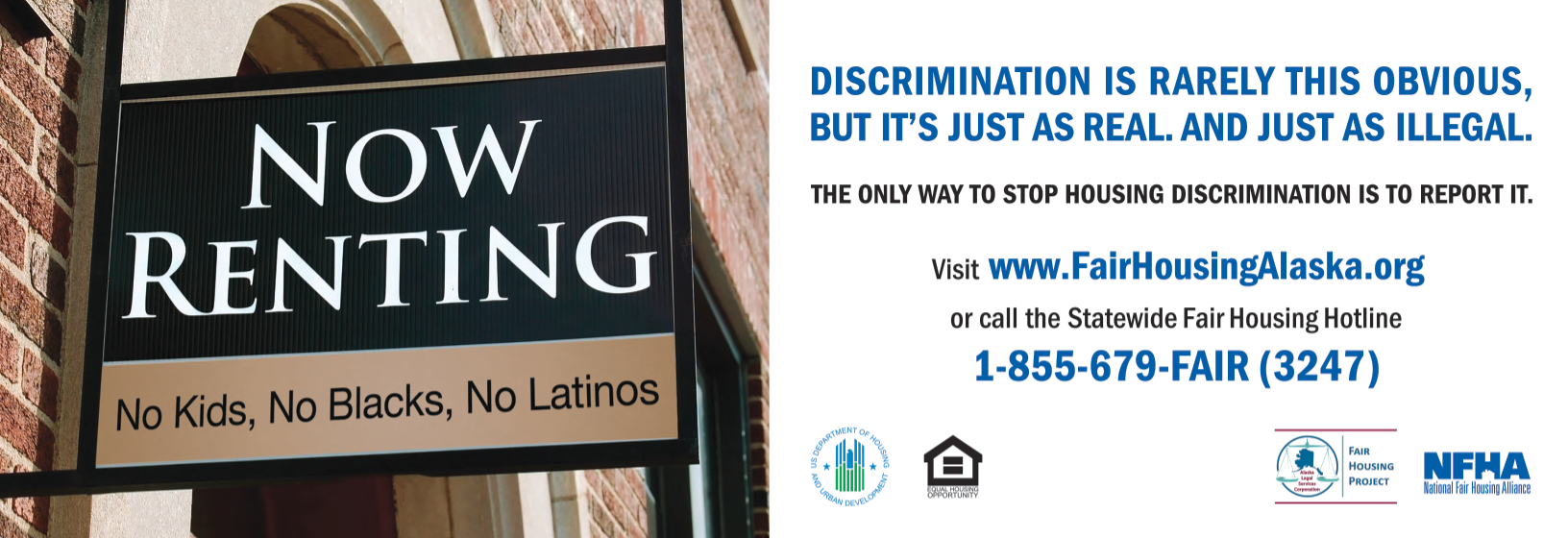DISCRIMINAtion in the workplace,
what can you do?
by mitzi bolaños
|
We live in a political climate where harassment is being normalized and fear is stifling our protests. It is important to know that we have resources in our community when an individual has experienced discrimination because of his or her national origin, culture, ethnicity, language, accent, or even last name.
National origin discrimination means someone is treated differently because the person, or their ancestor, is from a certain place, or a person is associated with someone from a certain place.This includes how a person speaks. In Alaska, an employer may only base an employment decision on a person’s accent if oral communication is necessary for the job and the accent significantly interferes with the ability to communicate. This is generally only acceptable for certain jobs, such as teachers, customer service representatives, or telemarketers. Similarly, demanding fluency in English as a job requirement may be illegal discrimination if it is not directly related to the job or if it is purposely done to exclude certain applicants. Similarly, rules requiring that employees speak only English at the workplace may constitute illegal discrimination, particularly if enforced at all times, including during break and lunch times. Such a rule may be permissible if enforced only at certain times, and if the employer can demonstrate a business necessity for the rule. |
Offensive or derogatory remarks about a person’s national origin, ethnicity, or accent may also constitute illegal discrimination if they are severe or pervasive enough to create a hostile work environment, or when it results in an adverse employment decision. Employers may be responsible for harassment by a supervisor, other employees, and even third parties, such as clients or contractors.
These are only some examples of illegal discrimination, and there are several other situations where an employer might be discriminating against an employee. If you think you or someone you know has experienced discrimination in the workplace, call the Alaska State Commission for Human Rights to discuss the situation with an investigator. |
|
Mitzi Bolaños Anderson is fluent in Spanish. She is an Attorney / Mediator for the Alaska State Commission for Human Rights. The Alaska State Commission for Human Rights enforces the Alaska Human Rights Law and investigates complaints of discrimination based on race, religion, sex, national origin, age, and disability, among other protected classes. The Law covers all individuals regardless of citizenship or immigration status. http://humanrights.alaska.gov (907) 274-4692 |


